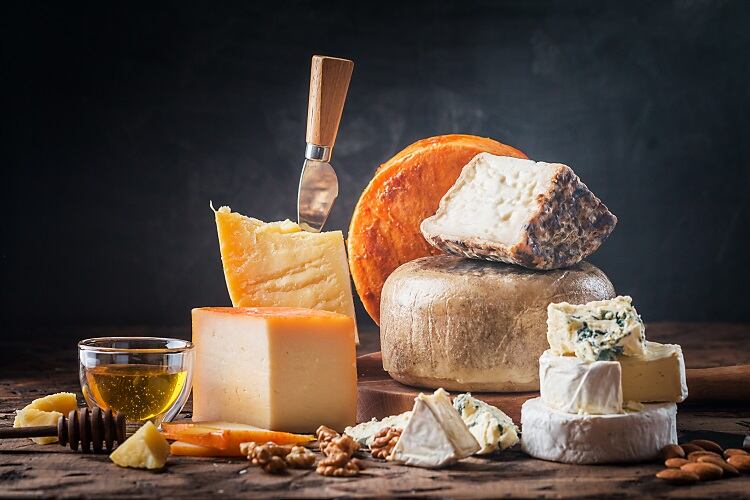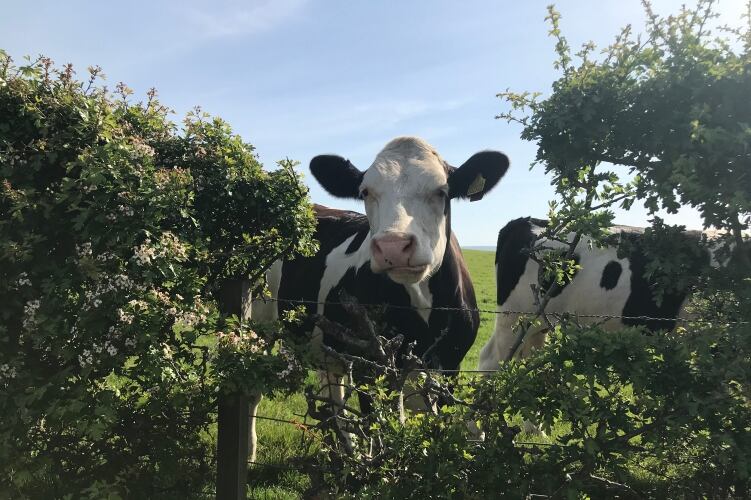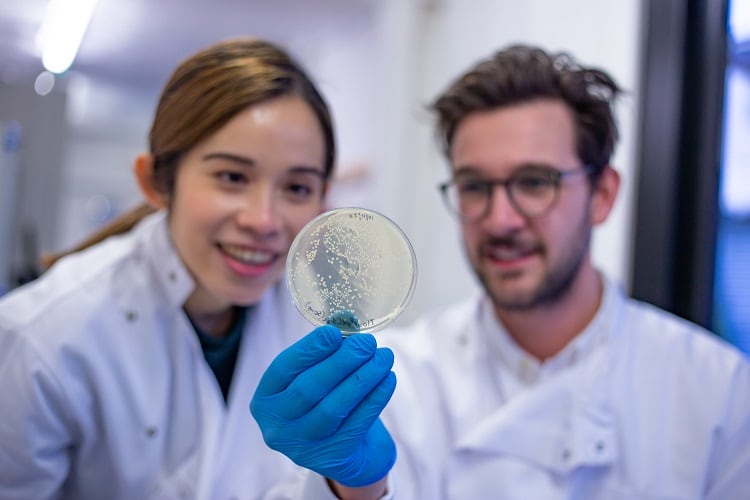Plant-based continues to gain traction, as a growing number of consumers opt for animal-free alternatives that support health, animal welfare and environmental sustainability agendas.
The coronavirus pandemic has helped accelerate this trend. Last year in the US, amid the COVID-19 outbreak, 18% of alternative protein buyers purchased their first plant-based protein. A significant 92% of those first-time buyers reported they were likely to continue.
And here in Europe, 80% of consumers said they are likely to continue eating plant-based alternatives, even once the pandemic has come to an end.
However, according to dairy alternative start-up LegenDairy, there is ‘one big problem’ with plant-based dairy products: “They just don’t live up to customers’ expectations.”
Plant-based milk alternatives, for example, tend to curdle, said LegenDairy Chief Scientific Officer Dr Britta Winterberg. And plant-based cream cheeses or yoghurts start to disintegrate ‘very quickly’.
Plant-based cheese alternatives ‘fall short’ in terms of functionality, such as meltability and stretchability, she continued. “They’re not suited to any kind of heated dishes, such as pizza.”
At the recent Reformulate: Fermentation-Enabled Alternative Protein Innovation Digital Summit, Dr Winterberg told delegates that while plant-based dairy alternatives might be enjoyed by a ‘niche’ consumer market, ‘they certainly can’t convince flexitarians’.
LegenDairy is working to solve this issue by combining biotechnology with European cheese making heritage. In doing so, it strives to provide consumers with the ‘same pleasurable experience’ of enjoying ’stretchable, meltable and delicious’ cheese.
Cutting out the middleman – or ‘the middle cow’
By using precision fermentation, LegenDairy is cutting out the middleman, or as Dr Winterberg put it, ‘the middle cow’. The process uses 91% less land, 98% less water, 84% less energy, and 65% fewer greenhouse gas emissions than traditional dairy farming, we were told.
The result is what LegenDairy claims to be ‘the best of both worlds’. “We can produce sustainable and nutritious products, which means we match the performance of traditional dairy, while being produced as sustainably as plant-based alternatives.”
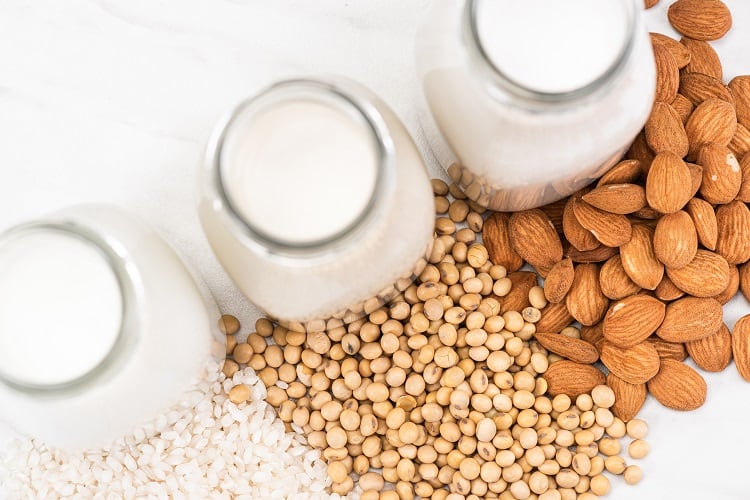
Bovine milk is made up of 88% water, 5% carbohydrates, 3% fat, 3% protein, and 1% ash. To start with, LegenDairy is working to recreate milk proteins, of which 80% is casein and 20%, whey. The proteins in casein include Alpha-S1, Alpha-S2, Beta, and Kappa. In whey, they include Alpha-Lactalbumin, Beta-Lactoglobulin, Serum Albumin, and Immunoglobulins.
These proteins are central to the production of functional dairy products, Dr Winterberg explained. And there are a range of hosts available to express these target proteins: yeast, bacteria, or filamentous fungi. Each of these have unique organism-specific possibilities and challenges, the CSO elaborated.
Protein yields associated with yeast expression, for example, are ‘not amazing’, and the growth rate is ‘quite slow’. However, yeast enables post translation modifications (PTMs), which is a plus.
Bacteria expression does not enable PTMs and has a lower yield. Yet, since they grow much faster, Dr Winterberg suggested production could be more cost efficient and the turnaround in R&D cycles, faster.
Filamentous fungi allow for PTMs, has a ‘much higher yield’ than both yeast and bacteria, however the proteins grown ‘much slower’. Longer R&D cycles mean, in turn, longer fermentation times.
The ‘big advantage’ is that Generally Recognised as Safe (GRAS) certified strains and species exist for all three systems, the CSO continued.
From gene to cheese
So how does LegenDairy go from petri dish to large-scale manufacturing? The biotech starts by cloning genes of interest, for example casein genes. Starting off with ‘thousands’ of clones, the start-up narrows them down to ‘just a few hundred’, which it screens at a ‘very small microtiter level’.
After more screening to assess the yields and performance of individuals strains, ‘a handful’ will progress to a fermentation screening at bench scale to check further for growth behaviour and nutrient needs.
“And then a few of those best performing strains – those that grow easily and that produce a high yield of protein – go onto the pilot stage,” Dr Winterberg explained. “This will only be done with a very limited number of strains and only one will then go onto industrial scale, where we then need to assess the downstream processes.”
While the start-up is still at the pilot stage, the CSO revealed it has already formulated its recombinant proteins into the final composition of protein, minerals and fats its needs to produce its ‘clean’ dairy products.
LegenDairy believes it can ‘redefine’ the cheese manufacturing process ‘in a more efficient way’. “Our dairy products don’t just strive to replicate traditional dairy products, they will have additional value,” Dr Winterberg told delegates.
“They are just as nutritious and functional as traditional dairy products, but they are also customisable.” This means that LegenDairy will be able to introduce healthy additives into its products more easily than be done in conventional dairy, we were told.
And from a health perspective, even without extra additives, Dr Winterberg said the company’s products will have reduced cholesterol-, hormones- and antibiotic contamination.

Tackling vegans’ ‘pain point’: cheese
The German start-up is not the first food biotech to tap precision technology in the dairy sector. Silicon Valley start-up Perfect Day, for example, is producing proteins and fats traditionally found in milk for the B2B market – similarly without the cow.
LegenDairy, on the other hand, is using precision fermentation to develop finished cheese alternative products for the B2C market. Cheese, it says, is the ‘biggest pain point’ for vegetarians looking to become vegan.
It is also often the product ‘most missed’ by those following a plant-based diet. “The unique structure of cheese cannot be replaced by plant-proteins,” said Dr Winterberg.
“There is no plant-based cheese out there that can even come close to the real deal.”
The start-up is excited by the range of cheese alternative products it says could be suitable to its technology. “With just a few strains and just a few proteins, we have a whole range of different products that we can produce.”
The start-up also plans on ‘leveraging’ its location in ‘the middle of Europe’. Not only does Germany have a rich cheese making culture, but it is surrounded by countries ‘full of cheese making heritage’, the CSO stressed. “Every region of every country in Europe has its own cheeses…and we can use that to produce artisanal cheese and other dairy products.”
Regulatory hurdles
While being in Europe arguably gives LegenDairy ‘an edge’ in terms of cheese making expertise, its location could well hinder its commercialisation strategy if it decides to sell locally.
LegenDairy has ‘reached out’ to the European Food Safety Authority (EFSA) – the body responsible for approving novel ingredients across the bloc – and acknowledged from that from a regulatory standpoint, ‘Europe is tricky’. “It might not be the easiest market to enter, it’s very restrictive,” said Dr Winterberg.
Across the pond, on the other hand, the US Food and Drug Administration (FDA) has already approved Perfect Day’s whey protein. “There are other markets – the Asian market, for example – that are much easier to access as a company,” she added.
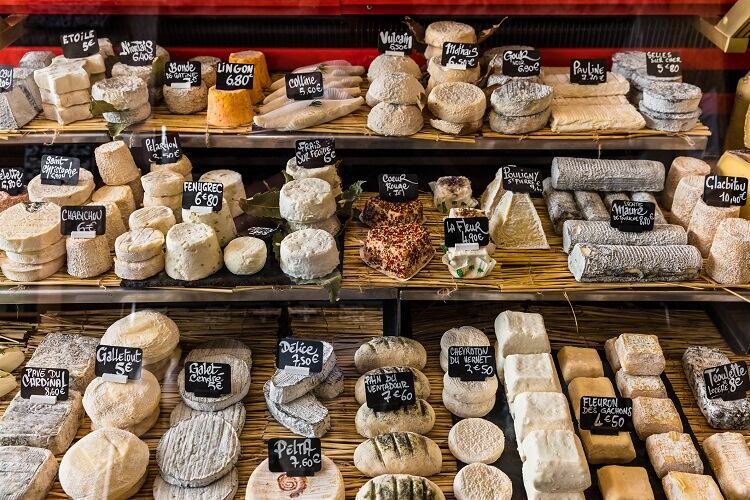
In the EU, food law may also present a barrier to how LegenDairy markets its products. In October last year, the European Parliament voted to ban dairy-related terms – such as ‘almond milk’, ‘vegan cheese’, ‘yogurt-style’ and ‘cheese alternative’ – for dairy-free alternatives.
How would LegenDairy deal with these regulations? “We [would] need to connect with policymakers in order to find a good way [to market our products],” said Dr Winterberg.
“Our products will have the same functionality and a very similar composition to what you see in traditional dairy, so why can’t you label it a cheese if the proteins – the main component in it – is actually the same, at the molecular level, as in traditional dairy products?
“Unfortunately, that’s still a bit of a battle.”


